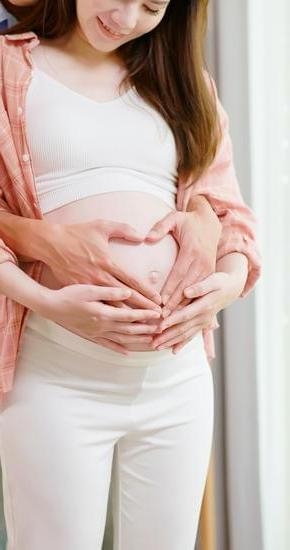Are you looking for ways on how to wash out sperm to prevent pregnancy? Understanding the need for this practice is important as it can help individuals make informed choices about their reproductive health.
In this article, we will delve into the various methods and options available for washing out sperm, as well as the risks and limitations associated with these methods. Additionally, we will explore DIY options for washing out sperm at home and the importance of emergency contraception after unprotected sex.
Sperm plays a crucial role in fertilization, which can lead to pregnancy. It is important to understand how sperm functions in order to effectively prevent pregnancy. This section will discuss what sperm is and how it causes pregnancy. By understanding the basics of sperm and fertilization, individuals can better grasp the importance of taking preventative measures.
While washing out sperm may seem like a practical solution for preventing pregnancy, it is important to be aware of the potential risks and limitations associated with these methods. This section will provide insight into the drawbacks of using washing out methods as a primary form of contraception. By being well-informed about these factors, individuals can make more informed decisions about their reproductive health.
What Is Sperm and How Does It Cause Pregnancy?
Sperm is a crucial component in the process of fertilization and pregnancy. Understanding what sperm is and how it causes pregnancy is important for individuals looking to prevent pregnancy. Sperm are male reproductive cells that are produced in the testicles. When released through ejaculation, they can travel through the female reproductive system to meet an egg for fertilization. If an egg is present during this journey, fertilization occurs and can lead to pregnancy.
The journey of sperm begins in the male reproductive system, where they are produced in the testicles. Once released through ejaculation, they travel through the vas deferens and mix with fluids from the seminal vesicles, prostate, and other glands to form semen. This semen is then ejaculated out of the body through the penis during sexual intercourse.
Once inside a female’s body, sperm can survive for up to five days if conditions are favorable. During this time, if an egg is present (usually released during ovulation), the sperm can fertilize it, leading to pregnancy. Understanding this process is crucial for individuals who want to prevent pregnancy and need information on how to wash out sperm to prevent it.
- Sperm carries genetic material that can fertilize an egg
- Sperm needs to reach an egg in order for pregnancy to occur
- The lifespan of sperm inside a woman’s body
Risks and Limitations of Using Washing Out Methods
When it comes to preventing pregnancy, some individuals may consider using washing out methods as a way to remove sperm from the vagina after intercourse. While this may seem like a viable option, it’s important to understand the risks and limitations associated with these methods.
Risks of Using Washing Out Methods
One of the main risks of using washing out methods to prevent pregnancy is that they are not always effective. Sperm can be very resilient and even if attempts are made to wash them out, there is no guarantee that all sperm will be removed. This could result in unintended pregnancy and the need for emergency contraception.
Another risk is that using washing out methods can disrupt the natural balance of bacteria in the vagina, potentially leading to infections or irritation. It’s important to consider these potential risks before attempting to wash out sperm.
Limitations of Washing Out Methods
It’s also important to note that not all washing out methods are equally effective. Some DIY options or home remedies may not be reliable in removing sperm from the vagina. Additionally, timing is crucial when it comes to using washing out methods, as they are only effective within a certain window of time after intercourse.
Ultimately, while washing out sperm may seem like a simple solution for preventing pregnancy, it’s essential to consider the risks and limitations before relying on these methods. It’s always best to consult with healthcare professionals for safe and effective options for contraception and pregnancy prevention.
Safe and Effective Methods for Washing Out Sperm
When it comes to preventing pregnancy, it’s important to have a good understanding of safe and effective methods for washing out sperm. While there is no guaranteed way to completely wash out sperm from the reproductive tract, there are some techniques that may help reduce the risk of pregnancy. Here are some safe and effective methods for washing out sperm:
1. Urination: One simple and natural way to wash out sperm from the vagina is through urination. Urinating after sex may help flush out some of the sperm from the reproductive tract, reducing the chances of fertilization.
2. Douching: Some individuals may consider douching as a method for washing out sperm. However, it’s important to note that douching can disrupt the natural balance of bacteria in the vagina and may increase the risk of infections. It’s not recommended as a regular method for preventing pregnancy.
3. Cervical mucus inspection: Monitoring cervical mucus can also be a method of washing out sperm. By understanding changes in cervical mucus throughout the menstrual cycle, individuals can identify fertile days and avoid unprotected sex during those times.
These methods may provide some level of protection against pregnancy, but it’s important to remember that they are not foolproof. It’s always best to use additional forms of contraception, such as condoms or hormonal birth control, to effectively prevent pregnancy.
It’s crucial for individuals to understand that none of these methods guarantee complete protection against pregnancy. In case of unprotected sex or concerns about potential exposure to sperm, seeking emergency contraception is highly recommended.
By being aware of safe and effective methods for washing out sperm, individuals can empower themselves with knowledge and make informed choices when it comes to preventing unplanned pregnancies. Consulting with healthcare professionals can also provide valuable guidance on choosing the most suitable contraceptive methods for individual needs and circumstances.
DIY Options for Washing Out Sperm at Home
When it comes to preventing pregnancy, there are various do-it-yourself (DIY) options for washing out sperm at home. These methods are often used as a last resort after unprotected intercourse or contraceptive failure. However, it is important to note that these DIY options may not be as effective as other forms of contraception.
One common method is vaginal douching, which involves using a mixture of water and vinegar or other substances to flush out the vagina after sex. However, experts advise against this method as it can disrupt the natural balance of bacteria in the vagina, leading to infections and other health issues.
Another DIY option for washing out sperm at home is urination after intercourse. Some believe that urinating immediately after sex can help flush out any remaining sperm from the urethra. While this may reduce the number of sperm present in the vagina, it is not a reliable method of contraception and should not be solely relied upon for preventing pregnancy.
It is important to remember that these DIY options for washing out sperm at home are not guaranteed to prevent pregnancy and may even pose risks to your reproductive health. If you are concerned about pregnancy after unprotected sex, it is crucial to seek professional medical advice and consider emergency contraception as a safer and more effective option.
| DIY Options | Effectiveness |
|---|---|
| Vaginal douching | Not recommended as it can disrupt vaginal balance |
| Urination after intercourse | Not a reliable method of contraception |
The Importance of Emergency Contraception After Unprotected Sex
After engaging in unprotected sex, it is important to consider emergency contraception as a way to prevent unwanted pregnancy. Whether it was due to a contraceptive failure or no form of birth control was used at all, the risk of conception is present and taking action promptly can help mitigate this risk. This section will delve into the different options available for emergency contraception and why they are crucial in preventing pregnancy after unprotected sex.
Types of Emergency Contraception
There are several options for emergency contraception, with the most common being emergency contraceptive pills (ECPs) also known as the morning-after pill, copper intrauterine devices (IUDs), and combined hormone IUDs. ECPs work by delaying or preventing ovulation, while IUDs can prevent sperm from fertilizing an egg by altering the cervical mucus and uterine lining. It is important to note that these methods are not 100% effective but using them as soon as possible after unprotected sex increases their efficacy.
Accessing Emergency Contraception
ECPs are available over-the-counter at pharmacies without needing a prescription, making them easily accessible for many individuals. However, IUD insertion must be done by a healthcare professional and may require an appointment. It is advisable to consult a medical practitioner for advice on the most suitable option based on individual circumstances.
Importance of Prompt Action
Time is of essence when it comes to emergency contraception as it becomes less effective the longer one waits after unprotected intercourse. The window of efficacy varies depending on the specific method used, hence why prompt action is crucial. Seeking medical advice and accessing emergency contraception soon after unprotected sex can greatly reduce the risk of unplanned pregnancy.
The Role of Healthcare Professionals in Preventing Pregnancy Through Sperm Washing
Healthcare professionals play a crucial role in educating individuals about the risks and limitations of using washing out methods to prevent pregnancy. They are trained to provide accurate information on safe and effective methods for washing out sperm, as well as DIY options for home use. Healthcare professionals can offer guidance on emergency contraception after unprotected sex, which is essential for preventing unintended pregnancy.
One of the safest and most effective methods for washing out sperm is through the use of emergency contraception, commonly known as the morning-after pill. This method works by preventing or delaying ovulation, inhibiting fertilization, or interfering with the implantation of a fertilized egg. It is important to note that emergency contraception should be used as soon as possible after unprotected sex for maximum effectiveness.
In addition to providing information on washing out methods, healthcare professionals also play a key role in counseling individuals about long-term contraceptive options. By discussing and recommending birth control methods that best suit an individual’s needs and lifestyle, healthcare providers can help prevent unintended pregnancies in the future. Counseling may include information on hormonal contraceptives such as pills, patches, and rings, as well as non-hormonal options such as intrauterine devices (IUDs) and barrier methods like condoms.
| Method | Effectiveness |
|---|---|
| Emergency Contraception (Morning-After Pill) | Up to 89% effective if taken within 72 hours of unprotected sex |
| Hormonal Contraceptives (Pills, Patches, Rings) | Approximately 91% effective with typical use |
| Intrauterine Devices (IUDs) | Over 99% effective at preventing pregnancy |
It is important for individuals to seek guidance from healthcare professionals when considering their options for preventing pregnancy through sperm washing. By receiving comprehensive information and support from trained experts, individuals can make informed choices that align with their reproductive goals and overall health. Healthcare providers also ensure that individuals have access to the resources they need to prevent unintended pregnancies effectively and safely.
Conclusion
In conclusion, understanding the need for washing out sperm to prevent pregnancy is crucial in empowering individuals to make informed decisions about their reproductive health. By educating themselves on the risks and limitations of using washing out methods, as well as safe and effective DIY options for washing out sperm at home, individuals can take control of their fertility and reduce the risk of unintended pregnancy.
It’s important to emphasize that while there are DIY options for washing out sperm at home, healthcare professionals play a critical role in providing guidance and access to emergency contraception after unprotected sex. This underlines the importance of seeking medical advice when it comes to preventing pregnancy through sperm washing, as healthcare professionals can offer personalized recommendations based on individual circumstances and provide necessary support.
Ultimately, empowerment through knowledge and informed choices enables individuals to take proactive steps in preventing pregnancy. By understanding how to wash out sperm to prevent pregnancy, individuals can make informed decisions about their reproductive health and take control over their contraceptive choices. Education is key in ensuring that everyone has access to the information they need in order to make choices that align with their own personal values and beliefs.
Frequently Asked Questions
How Can You Prevent Pregnancy After Sperm Enters the Body?
The most effective way to prevent pregnancy after sperm enters the body is by using emergency contraception, also known as the morning-after pill. It should be taken as soon as possible after unprotected sex for maximum effectiveness.
Does Urine Flush Out Sperm?
Urine does not flush out sperm from the female reproductive system. Once sperm enters the vagina, it can travel through the cervix and into the uterus and fallopian tubes, where it can fertilize an egg.
Can You Get Pregnant if You Wash Out the Sperm?
Washing out the sperm after intercourse is not a reliable method of preventing pregnancy. Sperm can travel quickly through the reproductive tract, and even if some is washed away, there may still be enough present to fertilize an egg. It’s best to use a form of contraception to prevent pregnancy.

Welcome to my fertility blog. This is a space where I will be sharing my experiences as I navigate through the world of fertility treatments, as well as provide information and resources about fertility and pregnancy.





